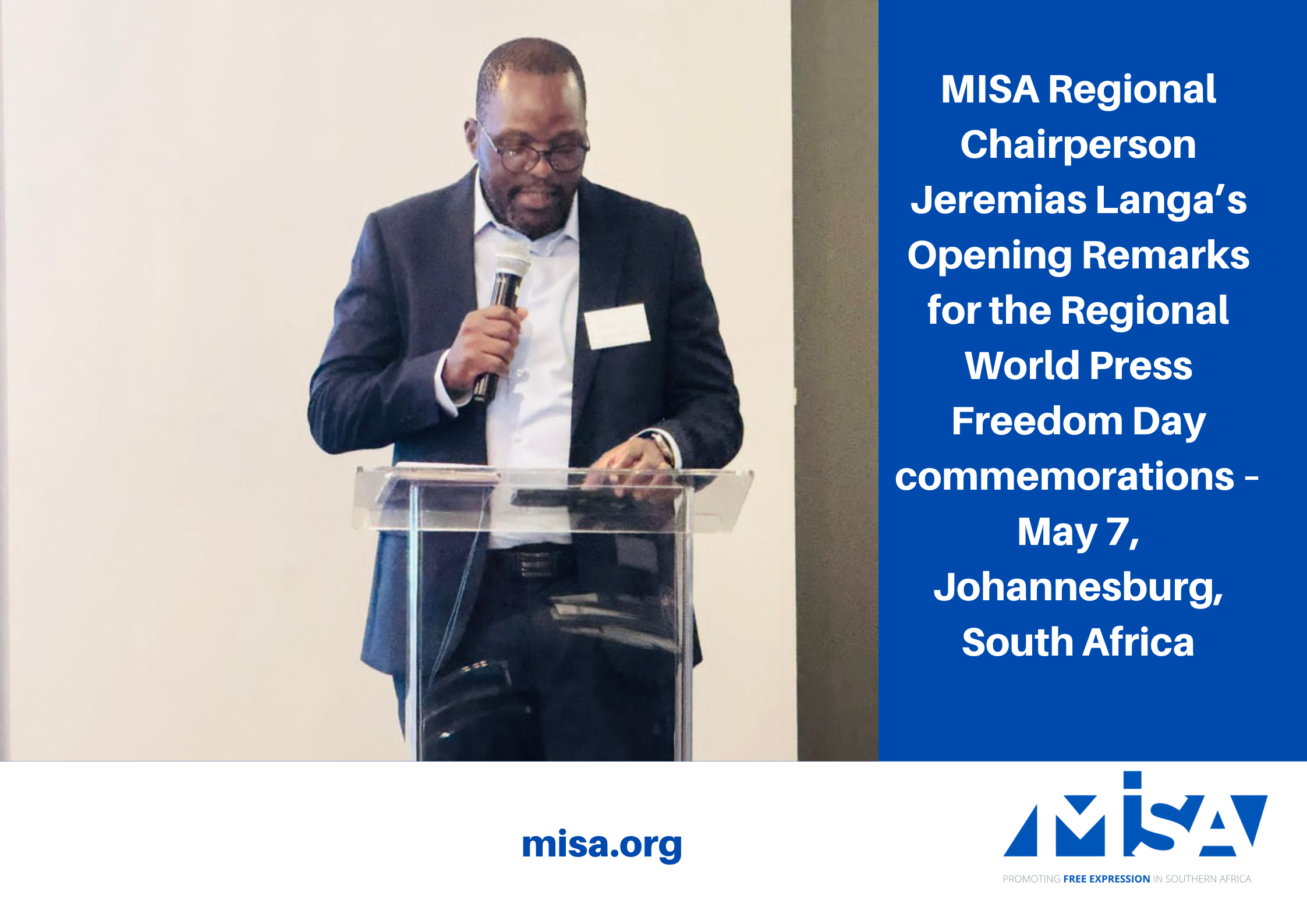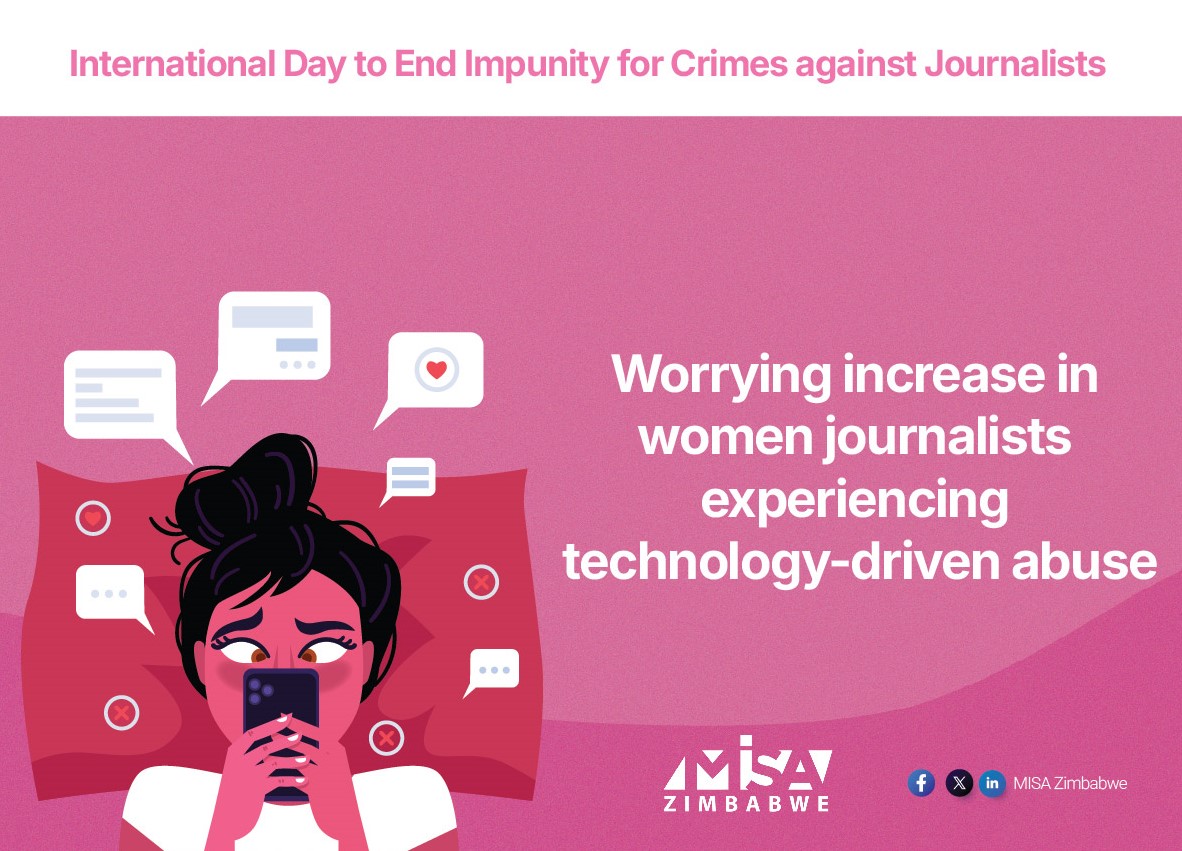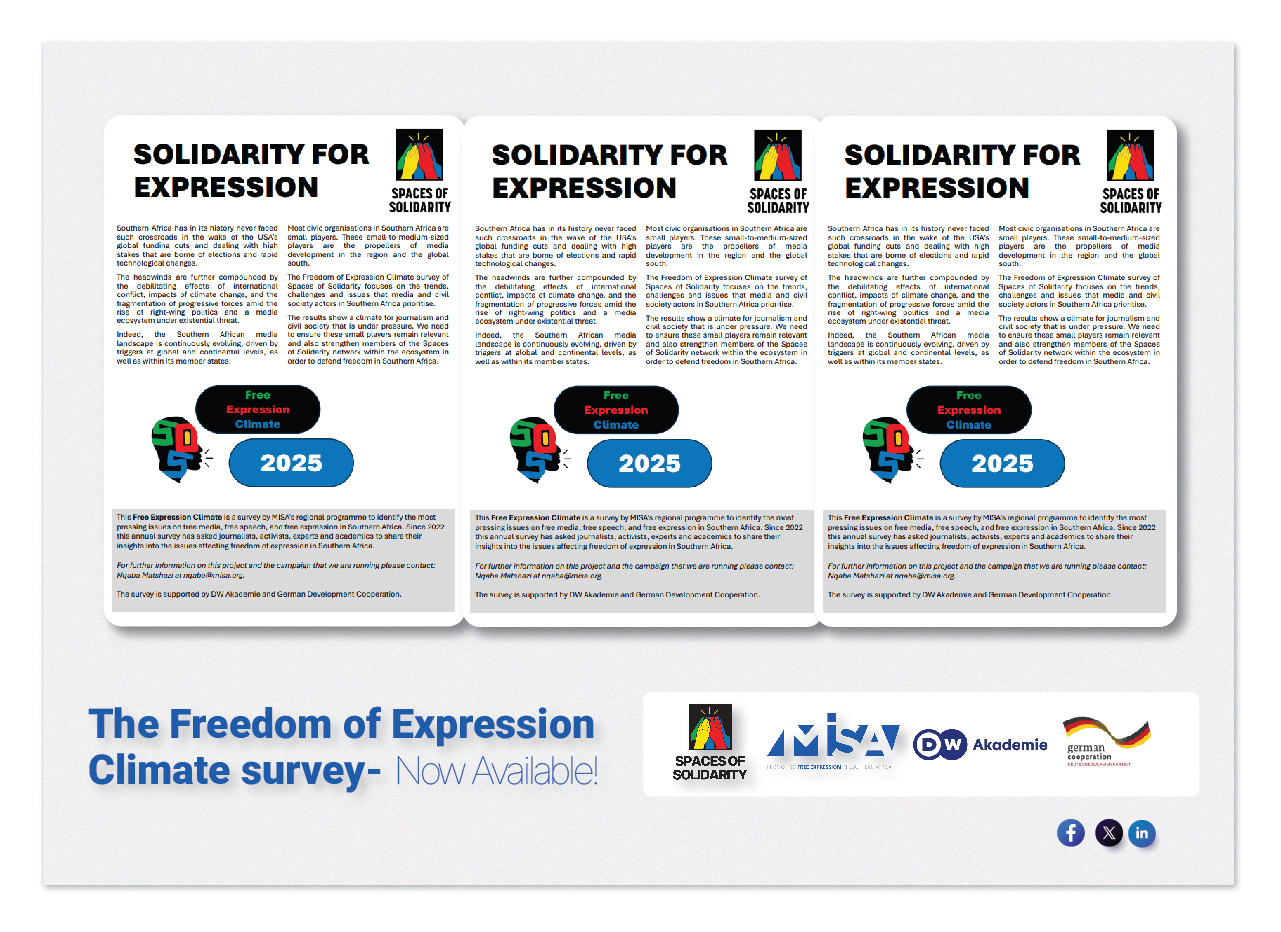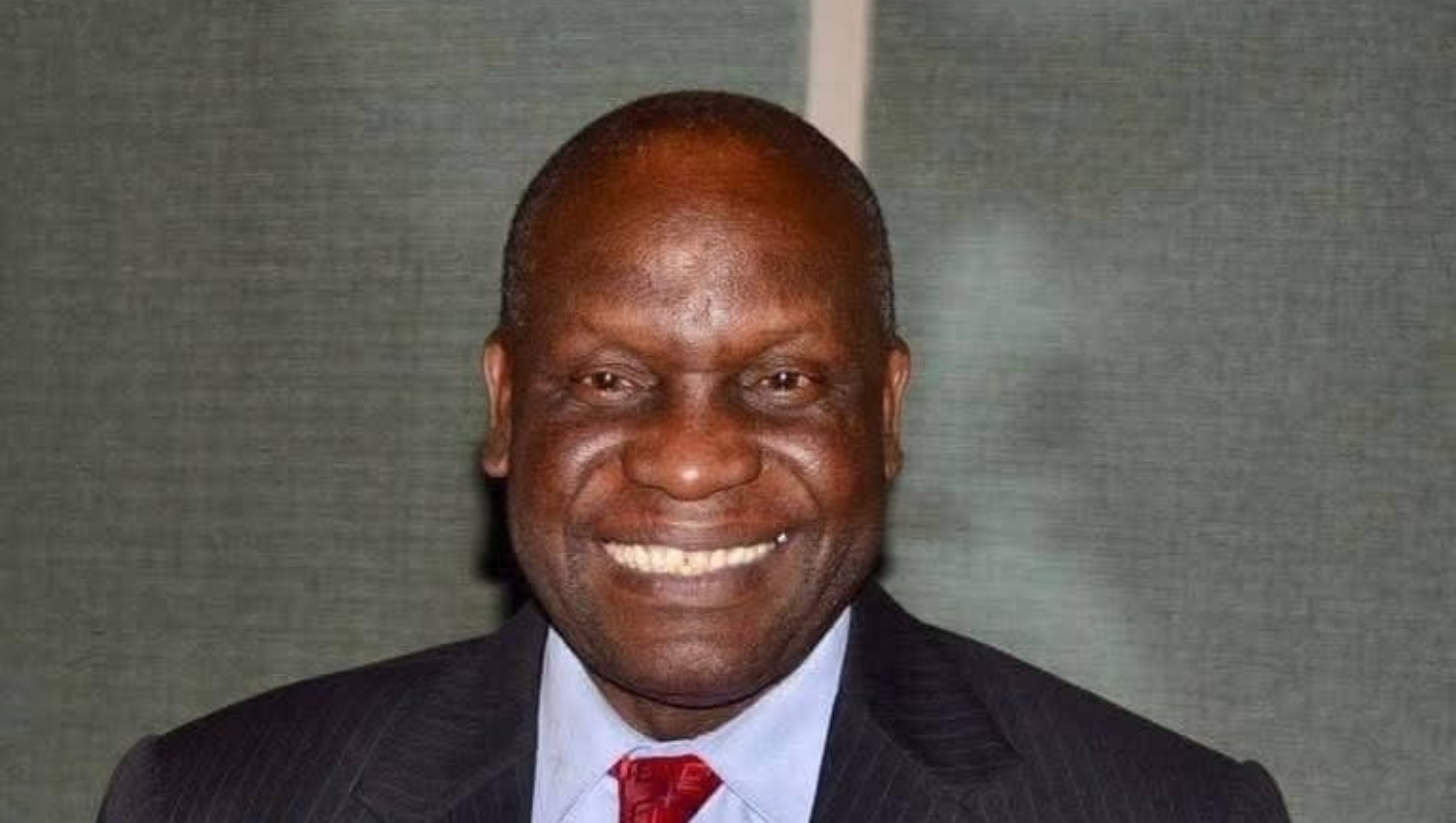MISA Regional Chairperson Jeremias Langa’s Opening Remarks for the Regional World Press Freedom Day commemorations – May 7, Johannesburg, South Africa
The Regional Representative of the Regional Office of OHCHR in Southern Africa Ms Abigail Noko
Secretary General of the National Commission for UNESCO, Mr Carlton Mukwevho
EU Delegation to South Africa Larsen Soeren Hoegsbro
Advisor for Communication and Information UNESCO Regional Office for Southern Africa, Mr Al Amin Yusuph
Government officials here present
Colleagues and friends
All protocols observed
Ladies and gentlemen, we gather this year to commemorate World Press Freedom Day, albeit belatedly, during a time when journalism confronts both old and new challenges.
I do not want to sound pessimistic, but I want to begin by saying that we are in unprecedented times, in which the very future of journalism is at stake.
The rise of right-wing movements in the West and the ongoing assault against the media in the United States do not bode well for the future of independent journalism.
Where the media once stood strong against tyranny, we are increasingly witnessing it recoil and toe the line of the leaders.
This is ominous not just for freedom of the press but also for democracy, which the global order has been trying to build for the past several decades.
It wasn’t perfect, but at least we were working toward something we believed would give us a chance to prosper.
Ladies and gentlemen, before addressing this year’s theme, allow me to turn to emerging issues in our region.
In my country, Mozambique, we witnessed shocking attacks on the media following the 2024 elections. While elections are often accompanied by violence, nothing could prepare us for the extensive assault on journalists.
In neighbouring Zimbabwe, Alpha Media Holdings senior journalist Blessed Mhlanga had spent almost 70 days in prison before being granted bail on 6 May 2025. Mhlanga is facing two counts of contravening Section 164 of the Criminal Law (Codification and Reform) Act, which addresses transmitting data messages inciting violence or damage to property.
In Zambia, the government has recently approved two cyber laws that may enable extensive surveillance on citizens, undermining the right to privacy.
This has a chilling effect on freedom of expression and the media. Such laws have been used in other jurisdictions to target political opponents, journalists, and activists.
I could continue, ladies and gentlemen, illustrating how we have regressed over the past year as a region.
Turning to Artificial Intelligence, we have seen in the past few years that new technologies possess revolutionary potential for transforming our methods and enhancing the efficiency of our work.
However, in our context, there is a genuine reason to fear that AI may be utilised to reproduce misinformation, spread disinformation, amplify online hate speech, and facilitate new forms of censorship.
The COVID-19 experience demonstrated how quickly our governments enact laws and regulations that facilitate surveillance under the guise of cybersecurity.
Within days of lockdowns being introduced, most countries in the region had enacted laws that promoted surveillance. Such laws remained in place, despite the pandemic showing signs of ebbing.
While AI is still nascent in Southern Africa, it is imperative that we adopt a multi-stakeholder approach to developing guidelines on the technology’s adoption, while simultaneously reaffirming our universal commitment to freedom of expression and press freedom.
In conclusion, ladies and gentlemen, I would like to ask whether we, as journalists, are truly reporting in a brave new world, or in a now scary and uncertain new world.
With these brief remarks, I would like to welcome you to this event on behalf of MISA.
I wish you fruitful discussions, and I hope we will all leave with solid takeaways on the next concrete steps we urgently need to take to improve our situation.
I Thank You!













